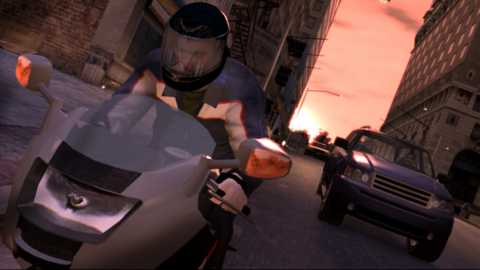The medicine of music
By Lies 5 Comments
Music is the medicine of the breaking heart-Leigh Hunt

The radio was a unique cultural uniter during the first half of the twentieth century, enabling for the first time the widespread dissemination of common music. Ever since the end of the silent movie era and the advent of "talkies", sound and music played a crucial role in movies, and later, television. Although at first used simply to voice characters or create simple sound effects, musical scores eventually became embedded into this new media, a melding of the old with the new. The bombastic scores of John Williams or Howard Shore's sweeping epics help translate the language of a movie for the viewer, transporting them to a different place and time. These classic and memorable themes easily elevate their products past beyond the sum of their parts, to a new plane of enjoyment.

Even mediocre composers consider these factors, though some leverage them better than others. The artistic goal is always the same; simple, yet incredibly challenging: Compose music that subtly complements the scene, contributing without overwhelming or clashing with anything else happening. And as the art forms have evolved, music has done a great job keeping up. Music is used to complement and underscore personal relationships, epic conflicts, and deeply personal struggles. From movies to television, the importance of musical scoring is well known. Great emotional connections can be forged by associating a certain character with certain music, or laying related compositions over intense moments, using the soundtrack to pace the events and frame scenes in ways that simply cannot be accomplished with just a camera and dialogue alone. This week's episode of Battletar Galactica was a perfect example. Featuring a frustrated piano player, the director perfectly and complexly tied several disparate story threads together via masterful use of piano scoring throughout the episode. Composer Bear McCreary put in a ton of man-hours to achieve the result, and it paid off. It was, as he puts it: "The most innovative score I've produced". And it succeeded in an exquisite way, raising the impct of the final product far above what it would have been without the musical underscoring.
However, despite the successes in these other mediums, scoring and music remains an almost invisible component to the majority of the videogame world. Some composers are noted for quality, such as Nobuo Uematsu, and Koji Kondo, two Japanese musicians famous for their work on Final Fantasy and Nintendo franchises, respectively. However, as good as this music is, videogame scores still don't have anywhere near the impact their cinematic counterparts do; and ironically enough, the point where videogame composers can come close to rivaling movies is during cutscenes- essentially short movies inserted into games. The touching piano that interrupts the silence following Aeris' death, complementing the sound of the bouncing bead, could only be written because the composer knew the course of things to come, and that the player could not alter the scene or camera angle. The connection is forged, because in essence, this is a movie, and techniques unique to that medium can be applied, allowing for precision scoring. It wouldn't work if that scene was interactive or controlable.

As such, it is unreasonable to expect a videogame composer to be able to complete with the talented people working parallel to him in film or television. Without the ability to choreograph his compositions to match the onscreen actions, a composer is handicapped almost to the point of irrelevance. It's like asking someone to write a book using only 200 words. You don't get Hemingway, you get Dr. Suess. You may marvel at Suess' ability to write Green Eggs & Ham with such a limited vocabulary, but at the end of the day it just can't stand next to For Whom The Bell Tolls, and it's ridiculoous to expect it to. Because they have been stripped of these vital tools of control, videogame music will never have the level of synergy and connectedness that exists in other visual media. Their greatest strength in one aspect is their biggest flaw in another. Although they can certainly create decent sounding music to play in the background while players shoot up alien worlds or embark on a noble quest to save the kingdom, it will always be slightly detached from the experince, inherently lacking in emotional investment.
Although videogames claim the unique abilities of sound that can somewhat adapt to in-game circumstances, as has been proven time and time again in countless mediums and subjects, cold, calculating technology can never match the artistic quality or vision of a genuine person. Zelda's score might adapt to a darker, more violent tone when you encounter a monster, but those are simple parlor tricks. It functions the same as if an indicator popped up on the screen, alerting players to a nearby enemy. A simple array of modulating sounds has limitations, and after even a few hours of play they become apparent.
Because one can never be sure of a player's actions, music and videogames will never be able to posses that familial bond that music and cinema do. The closest the two will ever be is in the cutscenes, the non-game parts of a game. In exchange for control, artistry and impact must be sacrificed. Although they are a burgeoning sandbox for new stories and ideas, games will never approach film or even television in terms of artistry due to this dichotomy. Something which is such a vital component to other visual media will never be a major part of videogames. This problem can never be rectified, by the very nature of these games and their need for interactivity. The level of artistry can simply never compete. No matter how hard videogames overcompensate, the gap can't be bridged, and that's a shame.
